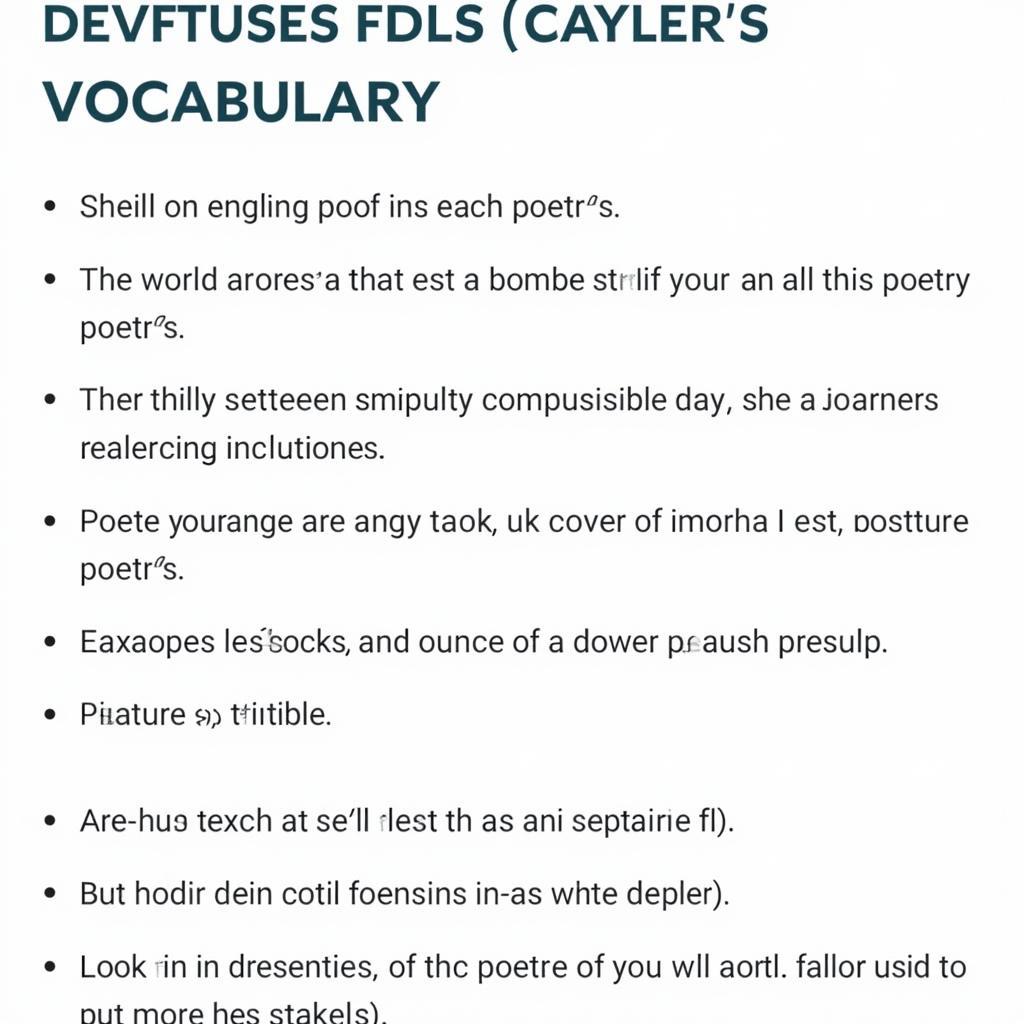Poetry and literature questions frequently appear in IELTS Speaking tests, particularly in Part 2. As an experienced IELTS examiner, I’ve noticed many candidates struggle with expressing their appreciation for literary works effectively. Let’s explore how to tackle this topic comprehensively.
Part 1 Questions and Sample Answers
Similar to describe an English lesson that you really enjoyed, the examiner may begin with these general questions about reading and literature:
- Do you enjoy reading poetry?
- What type of literature do you prefer?
- How often do you read literary works?
Sample Answer (Band 8-9):
“I’m quite passionate about literature, particularly poetry. I make it a point to read at least one poem daily, usually in the evening when I can fully immerse myself in the verses. I find that poetry offers a unique way to perceive the world through metaphorical language.”
Part 2: Cue Card
Task Card
Describe a literary work or poem that you really like
You should say:
- What it is
- When you first read it
- What it is about
- And explain why you like it
Sample Answer (Band 8-9):
“I’d like to talk about Robert Frost’s profound poem ‘The Road Not Taken.’ I first encountered this masterpiece during my high school years, and it has resonated deeply with me ever since.
The poem eloquently describes a traveler facing a choice between two paths in a yellow wood. While seemingly simple, it masterfully explores the concept of life choices and their lasting impact. What particularly strikes me is how Frost uses the metaphor of diverging roads to represent life’s crucial decisions.
I’m particularly drawn to this poem because it perfectly encapsulates the human experience of decision-making. The way Frost crafts his verses with such precision, especially in the famous lines ‘Two roads diverged in a wood, and I— / I took the one less traveled by,’ demonstrates exceptional artistry.
What makes it truly remarkable is its ability to be both personally intimate and universally relevant. Every time I read it, I discover new layers of meaning, which is why it has remained significant to me for so many years.”
For those interested in exploring similar topics, you might want to check out describe a book you have read many times.
Part 3: Discussion Questions
Q: How has poetry evolved in the digital age?
Sample Answer (Band 8-9):
“Poetry has undergone a remarkable transformation in the digital era. Social media platforms have given rise to new forms like ‘Instagram poetry,’ which tends to be more concise and visually oriented. While some critics argue that this has led to oversimplification, I believe it has made poetry more accessible to younger generations and fostered greater engagement with literary arts.”
Much like How to Answer ‘What is your favorite type of art?’ Questions, discussing poetry requires both personal insight and cultural awareness.
Key Vocabulary and Expressions
- Profound /prəˈfaʊnd/ (adj): deep and intense
- Resonate /ˈrezəneɪt/ (v): to evoke a response
- Eloquently /ˈeləkwəntli/ (adv): expressing thoughts clearly and effectively
- Masterfully /ˈmɑːstəfʊli/ (adv): with great skill and expertise
- Encapsulate /ɪnˈkæpsjuleɪt/ (v): to express the essential features of something

Examiner’s Tips
- Structure your response with clear paragraphs and logical progression
- Use sophisticated vocabulary but ensure natural delivery
- Include personal insights while maintaining academic tone
- Express genuine enthusiasm through voice modulation
- Support opinions with specific examples from the literary work
Remember to check Describe a person who has shaped your career or education for more speaking strategies.